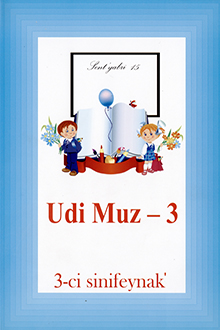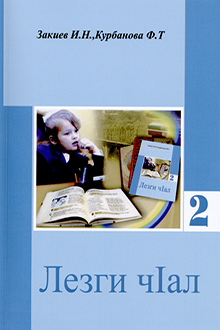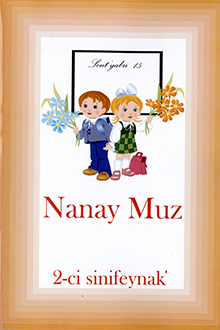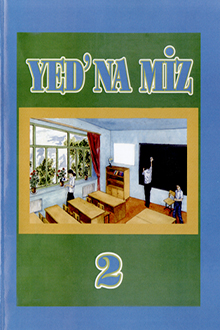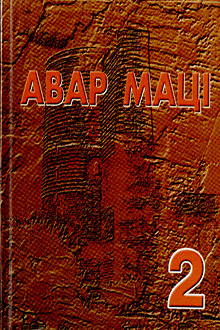The rights of ethnic minorities are a component of the general human rights. For this reason, each representative of ethnic minority has the right for a personal autonomy. The personal autonomy incudes all rights, as well as many social and cultural conditions for minorities, being citizens of the state. Freedom of the native language influences all private and public life. Just in the native language, the people acquire sense of consciousness, what is one of the important conditions for adaptation in society.
The independent Azerbaijani state and its founder Heydar Aliyev always showed attention and care for languages, culture, customs and traditions of the ethnic minorities living in the country. The Republic of Azerbaijan, being the full member of the Council of Europe, takes practical measures for implementation of the principles of “The European Charter for Regional or Minority Languages” accepted by this organization on November 5, 1992.
Today representatives of the ethnic minorities living in Azerbaijan speak in their native language freely. In many higher and secondary educational institutions, it is provided free application of the native languages, and the customs and traditions are fully respected.
Almost all ethnic minorities living in the republic know the state language of Azerbaijan and this language is used as means of interethnic communication.
“The right to use the native language” is fixed in the Article 45 of the Constitution of the Republic of Azerbaijan. Usually, “native language” is understood as the language of parents or the persons replacing them. As a rule, language of an ethnic group to which it belongs is considered the native language of the person.
According to the acting Law of the Republic of Azerbaijan “On education", parents or persons replacing them, have the right to choose teaching and educational institutions, and also teachers and tutors for the children who did not reach age of their majority.
Now, the ethnic minorities living in Azerbaijan open schools, prepare and issue newspapers, education and methodical aids in their languages.
According to the Article 21.2 of the Constitution of the Republic of Azerbaijan, the Azerbaijani state provides free use and development of other languages, on which the population of republic speak.
According to the Law “On Education” approved by the President of the Republic of Azerbaijan of September 5, 2009, “The state guarantees creation of appropriate conditions for each citizen to receive education and does not allow deprivation of any steps of it, or, the level or form of education”. It is also noted:
“The state guarantees creation of opportunities for each citizen to get education irrespective of sex, race, language, religion, political views, nationality, social position and origin, opportunities of health and non-admission of discrimination”.
Studying of Azerbaijani as a state language in all territory of the Republic are carried out equally and there is no nay problems in this regard. 2-3 hours a week are allocated for teaching of Azerbaijani in the educational institutions as a state language.
According to the requirements of Article 25 of the Constitution of the Republic of Azerbaijan titled the “Right for Equality”, the state guarantees the right of citizens for education, irrespective of race, language, national and religious identity.
According to the Decree of the President of the Republic of Azerbaijan “On the state support for the protection of rights and freedoms and development of languages and culture of national minorities, small peoples and ethnic groups living in the Republic of Azerbaijan” of September 16, 1992, necessary conditions have been created for teaching their languages at comprehensive secondary schools.
Teaching at the comprehensive secondary schools of the country is carried out in Azerbaijani, Russian, Georgian and Armenian (in the Nagorno-Karabakh region of the Azerbaijan Republic) languages. Accordingly, there were approved curricula for schools with three languages of teaching. In 248 preschool educational institutions of 1.764, acting in the education system of the republic, 8.347 children receive education and are brought up in Russian language, and in 7 preschool educational institutions more than 300 children get education and are brought up in the Georgian language.
At the same time, in the curricula of the I-IV classes of schools in which the languages of ethnic minorities (Avar, Kurdish, Udi, Tsakhur, Hebrew, Khynalyg and other languages) are taught as the native language, for teaching of these languages are allocated 2 hours a week.
In 13 regions of the republic (Lankaran, Astara, Balaken, Oghuz, Guba, Gusar, Gabala, Zaqatala, Ismailli, Lerik, Masalli, Samukhi and Khachmaz regions) where ethnic minorities live, adequate measures are taken in order that children of relevant minorities could learn their native language, national customs and traditions, culture. For the effective organization of teaching of languages of the small peoples and ethnic groups, constantly there are in the center of attention also questions of preparation and edition of the programs and textbooks, education and methodical aids, recommendations and other means.
In the preschool educational institutions functioning in the regions of compact residence of ethnic minorities, children speak their native language.
At the same time, at 16 schools covering 3910 pupils, teaching is conducted only in Russian, and at 6 schools covering 673 pupils - in the Georgian language. At 321 schools with teaching in the Azerbaijani and Russian languages, 103999 pupils study in the Russian sector. At 3 schools with teaching in the Azerbaijani and Georgian languages, 359 pupils study in the Georgian sector, at 1 school with teaching in the Azerbaijani, Russian and Georgian languages - 103 pupils are involved in education in the Georgian sector, and 90 pupils - in the Russian sector. Thus, at 337 schools of the republic 103999 pupils are taught in Russian language, and in 10 schools -1121 children study in the Georgian language.
Besides, in the republic there are 10 comprehensive secondary schools with teaching in the Georgian language. These schools function in Gakh (7 schools), Zaqatala (2 schools) and Balaken regions (1 school).
The comprehensive secondary schools representing a number of regions of Azerbaijan teach the Lezgin, Talysh, Hebrew, Avar, Tsakhur, Udi, Kurdish and Khynalyg languages. According to the approved curriculum, on teaching of each of these languages are allocated 2 hours a week.
The Lezgin language is taught in the I-IX classes, the Hebrew language - in the I-XI classes, and other languages in the I-IV classes. The sphere of coverage of these languages looks as follows: Lezgin language (98 schools, 12325 pupils), Talysh language (225 schools, 19010 pupils), Avar language (22 schools, 1489 pupils), Tsakhur language (5 schools, 492 pupils), Udi language (3 schools, 183 pupils), Kurdish language, (2 schools, 42 pupils), Khynalyg language (1 school, 109 pupils), Hebrew (1 school, 74 pupils).The children of the small peoples who are taught in comprehensive secondary schools of the republic and their teachers participate in various competitions. The competitions for the title of “The best teacher” held for the last 8 years also were joined by the teachers representing the small peoples and they became winners of competition. For this period, the winners of “The best teacher” competition 12 teachers were the Avar, 7 teachers of the Talysh and 5 teachers of the Lezgin nationality.
At the Baku Slavic University, there functions the Sunday school to teach the Ukrainian language, as well as the society of languages and culture of the Caucasian peoples.
At School 46 of the city of Baku, it has been already for 10 years as the Hebrew language is taught. Already it is for several years as has started a private secondary school where pupils learn the Jewish language, history and culture of Jews.
In pursuance of the requirement, “The right to choose the language of teaching and learning is provided in the appropriate order by expansion of classes, groups and creation of conditions for their functioning”, stipulated by the Law of the Azerbaijan Republic “On education”, 8539 pupils are children of the population of ethnic minorities and are engaged in 595 preparatory classes organized for the choice of language of teaching at the comprehensive secondary schools of the regions of their residence. Results of such sensitive attitude towards ethnic minorities in our country are expressed also in this fact: the pupils in the Khynalyg village of Guba region - a unique settlement where the Khynaligs speak their language - have 7 primary classes for 104 pupils where teaching is conducted in Khynalyg language.
In the Balaken, Gakh and Zaqatala regions, the children of school age of ingiloys, depending on desire of parents, receive education in the Azerbaijani, Georgian and Russian languages.
As already mentioned above, in 13 regions of the republic where ethnic minorities live, adequate measures are taken in order that children of relevant minorities could learn their native language, national customs and traditions, culture. In particular, 12325 pupils, generally in primary classes of 98 schools of Guba, Gusar, Ismailli, Khachmaz, Oghuz, Gabala regions learn the Lezgin language, 19010 pupils of 225 schools of Lerik, Lankaran, Astara, Masalli regions - the Talysh labgauge, 2384 pupils of 34 schools of Balaken, Gabala, Khachmaz, Zaqatala, Guba, Samukh regions - learn the Avar, Udi, Tat, Tsakhur, Jewish, Khynalyg, Kurdish languages.
Now, at 357 schools of the republic 35 thousand schoolchildren representing small peoples and ethnic groups get education in their native language.
Now, at the comprehensive secondary schools of Azerbaijan in the Turkish sector there are 592 pupils, in English sector – 2126, in French – 77 pupils.
In the academic year 2015-2016, for comprehensive secondary schools where teaching is conducted in the Russian language, it was published 273350 copies of textbooks in 39 nominations, and 11340 copies of educational supplies for teachers in 25 nominations.
Generally, in language of ethnic minorities, textbooks and teaching supplies of 16 names have been written and after the edition they have been presented to the educational institutions.
A number of actions were realized for the organization of education of the small peoples in the sphere of secondary vocational education. The work done in this sphere consisted, generally, in the organization of teaching among the ethnic minorities youth in the native language, in creation of structural divisions of secondary vocational educational institutions in regions of their compact residence, and the events held in other forms.
As of 2014, in regions of compact residence of ethnic minorities – in Gusar, Khachmaz, Guba, Gakh, Balaken, Zaqataala, Gabala, Lankaran, Yardimli, Masalli, Lerik regions, 2820 pupils are involved in teaching in the system of the first level vocational professional education. It is of very great importance for obtaining by children from such families of the first level vocational professional education.
To cover ethnic minorities in Azerbaijan with vocational professional education 4 secondary special educational institutions function in the southern and northern regions of the republic, that is, the State Humanitarian College in Lankaran, the Pedagogical Technical College in Astara, the Technology and Management College in Zaqatala, and the State Social-Economic College in Guba. These educational institutions prepare generally pedagogical personnel, and also specialists for spheres of arts, tourism, economy, agricultural industry, communication and transport.
The Gusar branch of the Azerbaijani State Teacher Training College that functioned till 2011, the departments of the Baku Industrial Teacher Training College and the Baku Food Industry College in Balaken and Gabala regions have played an important role in education of the citizens belonging to ethnic minorities as specialists in pedagogical and other specialties.
On the resolution of the Cabinet of Ministers of the Republic of Azerbaijan of June 26, 2014, there was a state regional college in Masalli in which on the basis of the appropriate curricula and programs it was started training on agronomic and veterinary sciences, forest and forest-park economy, tourism and other spheres.
For the comprehensive secondary schools of the republic operating according to the new programs (curriculums) in which teaching is conducted in the Russian language, during the period from 2014 to 2008, it was published self-written and translated textbooks of 187 titles for the I-VII classes and methodical supplies for teachers, as well as textbooks of 71 titles for the VIII-XI classes.
Since 2006 in the I classes of comprehensive secondary schools in which representatives of ethnic minorities are trained, the teachers use the textbook titled “Let's Learn Our Language” (“Dilimizi öyrənək”, the author of which is Professor Yahya Karimov).
In 2014, the textbooks “Mathematics”, “Life knowledge”, “Informatics”, “Music” and “Fine arts” for pupils I, II, III classes of comprehensive secondary schools with training in the Georgian language have been translated by the relevant specialists and submitted for printing.
In 2010-2014, it was prepared the textbook “Udi Language” for II, III, IV classes of comprehensive secondary schools where the Udi language is taught.
For the effective organization of teaching of the languages of ethnic minorities, special attention has been paid to the questions of preparation and edition of programs and textbooks, teaching aids, school dictionaries, didactic materials, methodical supplies, recommendations, etc. To solve this important problem In October 1989, a special department, “Methods of teaching languages of the small peoples”, was created in the Ministry of Education, (now, at the Institute of Education Problems).
Due to the teaching at comprehensive secondary schools of the languages of the small people living in the country, there have been prepared, published and brought to educational institutions in recent years training programs, textbooks and education supplies of 15 titles on the Talysh, Lezgin, Kurdish, Tsakhur, Tat, Khynalyg and Udi languages for primary classes. In the curriculum on teaching these languages in the I-IV classes it is allocated two hours a week.
It was published and brought to the schools the textbooks “Abc-book” (the I class) in the Lezgin, Talysh, Tat, Udi, Kurdish, Tsakhur and Khynalyg languages, “The Lezgin language” (I, III, IV classes), “The Udi language” (III, IV classes), “The Talysh language” (III, IV classes), “The Tat language” (III, IV classes). Due to the teaching of the languages of the small peoples, taking into account features of regions of compact residence of these peoples, there were prepared, published and sent to the relevant addresses the program for the “Native Language” (“Doğma dil”) for pupils of the I-IV classes.
To render assistance in teaching of the languages of ethnic minorities, there were published and sent to the addressee methodical aids titled “On the Question of Teaching of the Talysh Language” and “Talysh-Azerbaijani School Dictionary” ("Talışca-Azərbaycanca məktəbli lüğəti”). Books titled “Lezgin-Azerbaijani-Russian Dictionary” (“Ləzgicə-Azərbaycanca-Rusca lüğət” ) and “Methodical Guide to the Textbook “ABC-book” in the Tat language” (“Tat dilind ə “Əlifba” dərsliyinə dair metodik rəhbərlik”). All these programs, textbooks and methodical aids have been discussed in the sector of “Languages of the small peoples” of the department of “Azerbaijani language” of Scientific and Methodical Council of the Ministry of Education, approved and recommended for the edition.
There was published and sent to pupils and teachers the textbook “Azerbaijani language” (X and XI classes) for pupils of schools with teaching in the Georgian language and “The Georgian-Azerbaijani-Russian dictionary” (“Gürcücə-azərbaycanca-rusca lüğət”).
As is noted in the preamble of the Convention of Parliamentary Assembly of the Council of Europe “The European Charter for Regional or Minority Languages”, accepted on November 5, 1992 in the city of Strasbourg, the Council of Europe member-states which have signed this Charter should consider creation of closer union between state members and protection of the principles of their general property.
Integration of the education system of Azerbaijan in the international, including in the European educational space is possible on condition of close cooperation with the international organizations. With respect thereto, one of the main activities of the Ministry of Education consists in strengthening of communications and mutual cooperation with the international organizations. A specific place among such communications is held by development of cooperation with the Council of Europe, participation in the international and regional education programs realized by this organization.
The Council of Europe is one of the most active international partners rendering expert assistance to reforms in the field of education, carried out in the country. It should be noted that effective cooperation in the field of education between the Ministry of Education of the Republic of Azerbaijan and the Council of Europe has arisen long before the official admission of Azerbaijan into the Council of Europe. Implementation of the first joint projects under the auspices of the Council of Europe has started since 1996.
Since 2002, it was started implementation of the “Education on Democratic Nationality” project. The Council of Europe and the Ministry of Education since 2003 realize a joint project “Educational policy and ethnic minorities”. The main objective of this project consists in assistance to member countries in preparation of legislative documents concerning education of ethnic minorities and provision of recommendations by it in the field of policy of education of ethnic minorities. For the purpose of effective implementation of this project there has been created Azerbaijan - the Council of Europe joint Working Group.
In 2005, the Council of Europe and Azerbaijan published joint final report on the subject “Policy on Education of Ethnic Minorities in Azerbaijan”. The report especially noted creation in Azerbaijan of all necessary conditions for teaching of ethnic minorities in their languages. At the same time, the report has included specific recommendations about enhancement of policy in the fields of education of ethnic minorities. At educational seminars within this project which has come to an end in 2007, 150 teachers and educators took part.
In the framework of the Program of Cooperation between the Council of Europe and the Ministry of Education in 2007-2009, it was realized one more joint project the main objectives of which consisted in improvement of the process of teaching in educational institutions of Azerbaijan of intercultural and interreligious dialogue, preparation of curriculum and teaching supplies on these questions for teachers.
Within this project, the delegation of the Ministry of Education has taken part in the Regional Conference taken place on February 18-19, 2008 in Strasbourg. At conference, it was adopted a Working Program of the project and the decision that for bringing the essence of the project to the educators and public, at the first stage in the countries of the region national conferences there will be held trainings for teachers with participation of experts of the Council of Europe. According to the Working Program, a national conference in Azerbaijan took place on April 24-25, 2008 in Baku. The conference was attended by 5 experts of the Council of Europe, representatives of the government institutions of Azerbaijan, the research institutes under the Ministry of Education and the Institute of Improvement of Teachers, as well as representatives of non-governmental organizations.
On June 19-20, 2008 within this project, at the Baku Skill Improvement and Retraining Institute of Pedagogical Cadres, there were conducted trainings for teachers of comprehensive secondary schools devoted to the questions of teaching the subjects connected with intercultural and interreligious dialogue. The trainings were attended by 240 peoples - teachers, methodologists and school directors.
On July 22-23, 2010, in the OSCE Secretariat, located in the capital of Austria, Vienna there was held a conference dedicated to the problems of education of ethnic minorities. At the action attended by representatives of 56 OSCE member countries, also took part Azerbaijan represented by the delegation headed by the deputy minister of education. Key subjects of discussions at conference were: education of ethnic minorities in member states, ensuring ethnic minorities with textbooks, the condition of admission of the representatives of ethnic minorities to higher education institutions and other questions. The conferees hailed the work done in Azerbaijan concerning education of ethnic minorities, especially noting the full implementation of the obligations assumed by Azerbaijan in this sphere.
The problems of education of ethnic minorities are also in the center of attention of the Heydar Aliyev Foundation. In 2006, in the framework of the Foundation’s Support to Education Project, were distributed among the first grade students of the secondary school of the Gakh-Ingiloy village of Gakh region the new textbooks published in the Georgian language, and school supplies. In the following years similar initiatives of the Foundation have received wider scope.
As it was already noted, today, in Azerbaijan, are under protection the rights of each citizen, irrespective of national identity, including the right of ethnic minorities to education. The strategy determined by the Azerbaijani state for development of language, culture and education of ethnic minorities is successfully being realized.
 Tolışə zıvon: çominci sinif=Talış dili: IV sinif üçün dərslik
Tolışə zıvon: çominci sinif=Talış dili: IV sinif üçün dərslik
 Tolışə zıvon: dıminci sinif=Talış dili: II sinif üçün dərslik
Tolışə zıvon: dıminci sinif=Talış dili: II sinif üçün dərslik
 Tolışə zıvon: seminci sinif=Talış dili: III sinif üçün dərslik
Tolışə zıvon: seminci sinif=Talış dili: III sinif üçün dərslik
 Zuhun tati=Tat dili: III sinif üçün dərslik
Zuhun tati=Tat dili: III sinif üçün dərslik
 Авар мацı=Avar dili: 2-ci sinif üçün dərslik
Авар мацı=Avar dili: 2-ci sinif üçün dərslik

